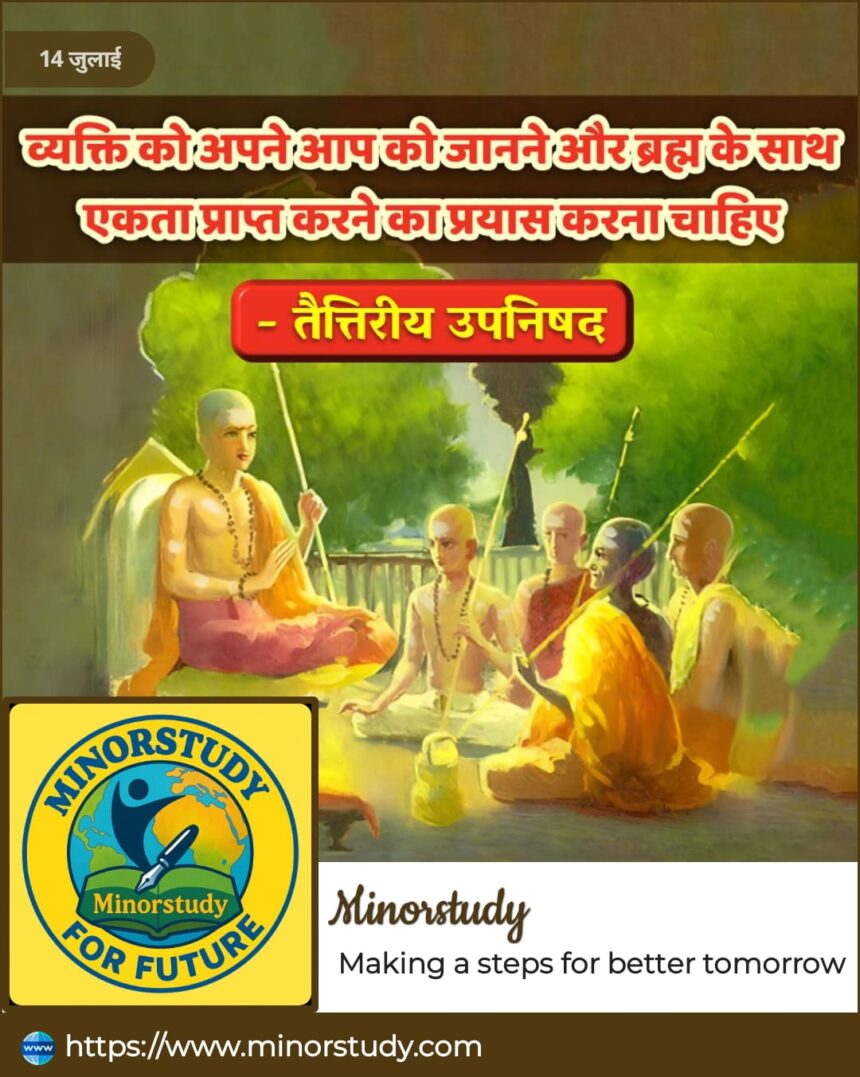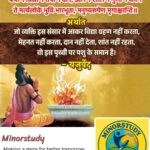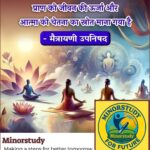🌟 7 Transformative Truths from the Taittireeya Upanishad That Inspire Inner Unity and Everlasting Peace
“One should try to know oneself and achieve unity with Brahman.”
— Taittireeya Upanishad
This timeless message from the Taittireeya Upanishad holds the key to a fulfilling, conscious, and meaningful life. In a world filled with external distractions, the Upanishad directs us inward — toward the Self (Atman) and ultimately Brahman, the infinite, eternal truth.
- 🌟 7 Transformative Truths from the Taittireeya Upanishad That Inspire Inner Unity and Everlasting Peace
- 📚 Introduction: What is the Taittireeya Upanishad?
- 🧭 Timeline and Historical Background
- ✨ The 7 Transformative Truths from the Taittireeya Upanishad
- 1. You Are Not Just the Body
- 2. Self-Knowledge is the Highest Knowledge
- 3. Brahman is Bliss: Anando Brahmeti Vyajānāt
- 4. Discipline and Gratitude Are Essential for Growth
- 5. Unity With Brahman is Liberation (Moksha)
- 6. Meditation is the Bridge to the Self
- 7. The Self is Everywhere and in Everything
- 🙏 How This Applies to Our Daily Life
- 🕉️ Observance and Practice of the Upanishadic Path
- 🎯 Important Points at a Glance
- 💬 Vedic Wishing Inspired by the Upanishad
- ❓ Frequently Asked Questions
- Q1. What is the central teaching of the Taittireeya Upanishad?
- Q2. What are the Pancha Koshas?
- Q3. Is Brahman a god or energy?
- Q4. Can an ordinary person realize Brahman?
- Q5. What makes this Upanishad special?
- 🏁 Conclusion: Become What You Truly Are
Let’s journey into the depths of this ancient scripture and understand why this single quote is more powerful than a thousand books.
📚 Introduction: What is the Taittireeya Upanishad?
Part of: Krishna Yajurveda
Divisions: Three sections (Vallis) — Shiksha Valli, Ananda Valli, and Bhrigu Valli
Themes: Education, Self-realization, Unity with Brahman, the five sheaths (Pancha Koshas)
Language: Sanskrit
Meaning: “Taittireeya” comes from “Tittiri,” the name of a sage’s school
Core Message: “Know thyself” and reach Ananda (bliss) by realizing Brahman
The Taittireeya Upanishad is not merely a text—it is a manual for enlightenment, taking one from the outer world of senses to the innermost core of the Self.
🧭 Timeline and Historical Background
| Period | Milestone |
|---|---|
| 1500 BCE – 1200 BCE | Composition of the Yajurveda begins |
| 1000 BCE – 800 BCE | Taittireeya Brahmana and Aranyaka composed |
| ~800 BCE | Taittireeya Upanishad crystallizes as part of the Aranyaka |
| Later Centuries | Commentaries by Adi Shankaracharya and others |
| Present Day | Widely studied by seekers, yogis, and scholars globally |
✨ The 7 Transformative Truths from the Taittireeya Upanishad
1. You Are Not Just the Body
The Upanishad introduces the concept of Pancha Koshas — five layers of human existence:
Annamaya Kosha – Physical body
Pranamaya Kosha – Breath/Energy
Manomaya Kosha – Mind and thoughts
Vijnanamaya Kosha – Intellect/Wisdom
Anandamaya Kosha – Bliss sheath (closest to the Self)
Transformation begins when you realize your true Self is beyond flesh and bones.
2. Self-Knowledge is the Highest Knowledge
Unlike material knowledge, Atma Vidya (knowledge of the Self) leads to freedom from fear, sorrow, and ignorance.
“He who knows Brahman, becomes Brahman.”
This quote reinforces the idea that the goal of life is not just success, but self-realization.
3. Brahman is Bliss: Anando Brahmeti Vyajānāt
The Upanishad declares:
“Brahman is Truth, Knowledge, and Infinite Bliss.”
When the mind dissolves in the Self, the seeker experiences Ananda (true joy) — not based on conditions or possessions.
4. Discipline and Gratitude Are Essential for Growth
In Shiksha Valli, students are taught:
“Speak the truth. Follow dharma. Never neglect self-study.”
The Upanishad insists on ethical living, respect for teachers, and service to parents and society.
5. Unity With Brahman is Liberation (Moksha)
Realizing Brahman is not just a theory—it is a state of inner unity, where:
Duality ends
Fear disappears
One feels oneness with all life
This realization is the highest goal of human life.
6. Meditation is the Bridge to the Self
By turning inward through dhyana (meditation) and viveka (discernment), the seeker moves through the layers (koshas) to discover the unshakable presence of the Atman.
“The one who meditates upon Brahman becomes fearless, free, and full of bliss.”
7. The Self is Everywhere and in Everything
“Sarvam khalvidam Brahma.”
This means, “All this is indeed Brahman.”
It teaches non-duality (Advaita) — that God is not separate from the world or from us.
🙏 How This Applies to Our Daily Life
🌱 In Relationships:
Knowing the Self reduces ego and expectations. You give with joy, not need.
🧠 In Mental Health:
You stop identifying with passing emotions and realize inner stability.
💼 In Work Life:
Work becomes worship. You act without clinging to results (Karma Yoga).
🧘 In Spiritual Practice:
Your sadhana (practice) becomes meaningful and focused on unity with the divine, not ritual for its own sake.
🤝 In Society:
A realized person contributes selflessly. They become a source of wisdom, peace, and compassion for the world.
🕉️ Observance and Practice of the Upanishadic Path
Daily reflection on Pancha Koshas
Meditation on “Soham” (I am He)
Study of the Upanishads with a guru
Service to society (Seva)
Ethical conduct (Satya, Ahimsa, Daya)
Simplicity, detachment, and surrender to Brahman
🎯 Important Points at a Glance
| Core Idea | Meaning |
|---|---|
| Atman | The true Self; unchanging awareness |
| Brahman | The infinite reality; source of all |
| Pancha Kosha | 5 layers hiding the Self |
| Moksha | Liberation from ignorance |
| Dhyana | Meditation to dissolve ego |
| Bliss | The natural state of the Self |
| Unity | No separation between self and universe |
💬 Vedic Wishing Inspired by the Upanishad
🌼 May you discover your divine Self beyond all limitations.
🕊️ May you move from darkness to light, from ignorance to bliss.
🌿 May you know Brahman and become Brahman.
🌞 May you rise above fear and duality into infinite unity.
❓ Frequently Asked Questions
Q1. What is the central teaching of the Taittireeya Upanishad?
A: That knowing the Self (Atman) leads to oneness with Brahman, which is the ultimate purpose of human life.
Q2. What are the Pancha Koshas?
A: Five sheaths or layers of human existence: body, breath, mind, intellect, and bliss.
Q3. Is Brahman a god or energy?
A: Brahman is beyond name and form — it is pure consciousness, existence, and bliss.
Q4. Can an ordinary person realize Brahman?
A: Yes. With sincerity, practice, and guidance, anyone can awaken to the truth.
Q5. What makes this Upanishad special?
A: Its step-by-step practical path to Self-Realization, explained with simplicity, clarity, and depth.
🏁 Conclusion: Become What You Truly Are
In the modern race for money, fame, and external success, this Upanishad whispers gently:
“Pause. Know yourself. You are already divine.”
The Taittireeya Upanishad doesn’t ask you to escape the world but to discover the infinite within you. Once that is done, everything outside becomes a reflection of your peace, purpose, and joy.
You don’t need to go to a forest. Your awareness is the temple, your life is the scripture, and your soul is the guru.
Don’t just live — realize. Don’t just exist — unite.








